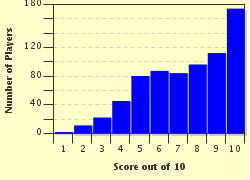Quiz Answer Key and Fun Facts
1. What is the geopolitical region in which we can find Sweden?
2. Which term most closely describes Sweden's form of government?
3. Whilst we enjoy the smörgåsbord, let's listen to Swedish folk music, which usually has fiddles, accordions, and Swedish bagpipes (säckpipa), which are a little smaller than Scottish ones. One young lady is playing a keyed fiddle. What is that called?
4. Not only folk music, but also pop music is a beloved export of Sweden! There have been so many Swedish acts that have entertained the world; but which of these is NOT one of them?
5. Which denomination was the established (state) church of Sweden from 1531 to 2000?
6. Swedes celebrate many a public holiday, or röd dag, both religious and non-religious. Which of these holidays is not a röd dag, that is, an official holiday defined by law, yet is widely observed?
7. Sweden was not directly involved in any war through most of the 19th and 20th centuries.
8. Sweden has produced many great scientists and engineers, particularly in astronomy, botany, zoology, physics, and electrical engineering. Which of these men of science and technology was NOT Swedish?
9. Swedes participate in a number of international sports, from ice hockey to football (soccer) to skiing. When did Sweden host (and lose, alas) the FIFA World Cup?
10. What's a smörgåsbord without food? Fish, dairy products, meat, and potatoes comprise a large part of the Swedish diet. Have some Swedish meatballs with gravy, boiled potatoes, and loganberry jam. And don't forget the lutfisk, which is what?
Source: Author
gracious1
This quiz was reviewed by FunTrivia editor
Snowman before going online.
Any errors found in FunTrivia content are routinely corrected through our feedback system.


